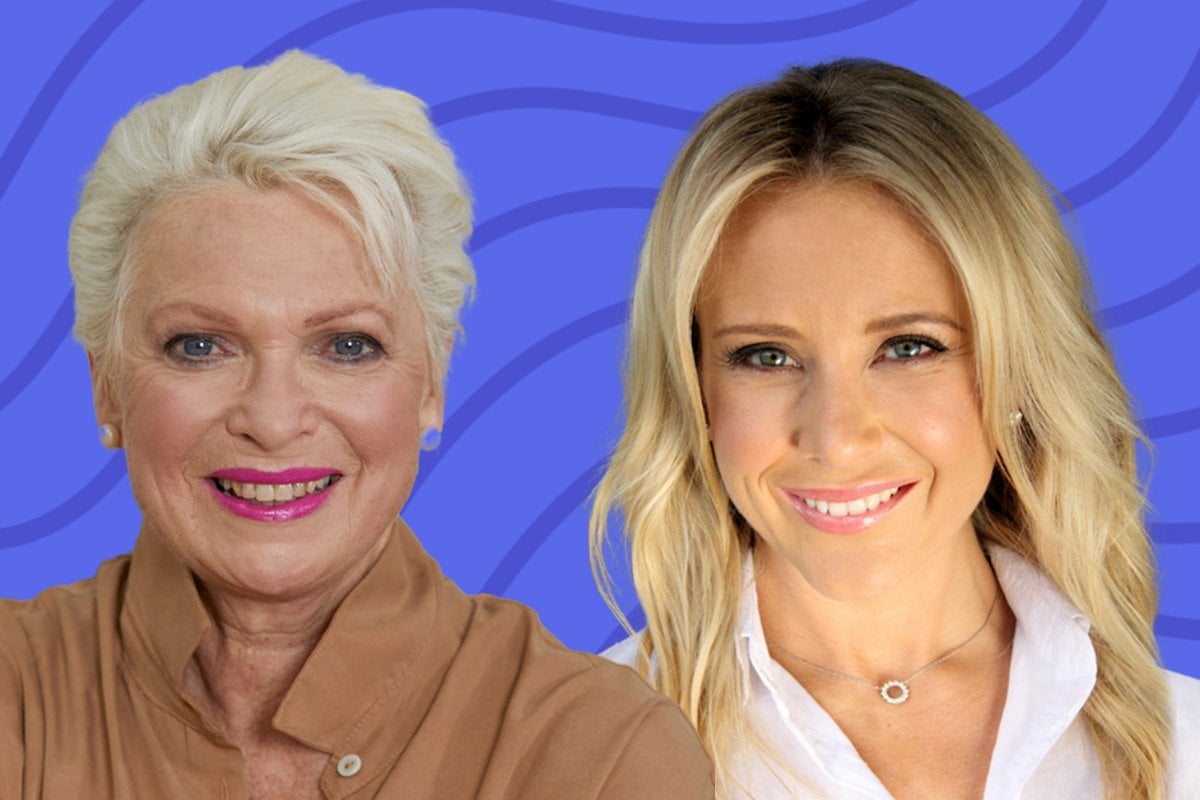
About Dr Wendy Sweet (PhD):
Dr Wendy Sweet (PhD) from New Zealand is a women’s health and ageing researcher and is passionate about women understanding weight gain in peri-menopause and how lifestyle change is imperative for women entering their menopause transition and therefore, their ‘third-age’.
About Susie Burrell
Susie Burrell is one of Australia’s leading dietitians. Susie works exclusively in the area of hormones and weight control and works online helping busy women reach their health and weight-related goals minus strict diets and deprivation.
Susie is the resident dietitian on Channel 7’s SUNRISE, has a weekly column in The Daily Telegraph and is regularly called upon to comment in the media on all areas of nutrition and healthy eating. Susie holds a Master’s Degree in Coaching Psychology at Sydney University.
In this session, we learn about how and why your body changes through perimenopause.
Here's what we learned from their chat.
Why do women gain weight during perimenopause?
Dr Wendy Sweet says we have a bunch of fluctuating hormones to blame.
"We have these two master hormones. These master reproductive hormones; Follicle stimulating hormone and luteinizing hormone," she explains.
"Now the master hormones control the production of estrogen in the ovaries, and as we come through menopause especially if we're not sleeping, those master hormones are starting to fluctuate."
Susie Burrell adds that the decreased estrogen production can lead to a loss of protection against weight gain "particularly around the abdominal area."
"The other hormone that I think we need to bring out into the open a lot more is a very honest discussion about insulin," she added.
"Now, insulin is the hormone that is the number one and regulator of glucose and fat metabolism in the body.
"And unfortunately it's our lifestyles, which are frantic and busy and sedentary for the most part, and the fact that we love our carbs and we love our more indulgent food that really makes weight loss very, very challenging, particularly as we get into the 40s, so you get that double whammy effect.
"As we get older we lose a bit of muscle mass, we're more sedentary and our insulin really often stops working effectively.
"And that makes weight control very, very challenging."
How to lose weight during perimenopause.
So how can you manage it? Well, Dr Wendy says first and foremost, you should give yourself a break.
"\You are aging. Even though we still feel young in our brain, inside we are aging. Those changes are inflammatory," she says.
"Number two, don't be so tough on yourself. Everyone's in such a rush to lose weight, but I say, no. You've got a as much time as it takes.
"Allow your body to transition. Proper weight loss that is sustainable is not a six week wonder. Successful weight loss through the National Weight Control Registry in the United States takes a year or more, so breathe."
Once you've taken some pressure off, enlisting the help of a dietician can be helpful, as Susie Burrell explains.
"The first thing I would discuss when someone comes to me is where in life have they been comfortable with their weight and what are they working towards? So it's about getting back in touch with that feeling of feeling your best self. Fit and healthy and ready to go.
Susie wants to remind women that weight loss during perimenopause shouldn't be motivated by aesthetics or a number on the scale, as it's likely the restrictive techniques used for this weight loss will be temporary and less effective.
"Each and every time we do those very restrictive diets, you end up back where you started and metabolically, it makes it much, much harder. And you're sad 'Cause you've got rid of all the joy from your life.
"So, if you love to have wines on the weekend with your friends or enjoy, take away food or restaurant eating, it's then my job as the conductor of the diet to work out a program that will allow you to do all the things you like while still achieving some weight loss.
"It's really about matching the person's personal food preferences. How they would like to eat, with the variables I may to induce weight loss."
What foods can help during perimenopause?
Susie says there are plenty of foods that can help and harm with weight gain during menopause.
"We really want at this stage in our lives, the really anti-inflammatory super foods that are really high in antioxidants because we all want to look younger. We want to feel better," she says.
"So it's brightly coloured fruits and veggie. So things like veggie juices, green juices are very smart.
"We want [to be eating more] leafy green vegetables, like your kale, spinach, rocket every single day a lot more volume of that per day.
"And we want the anti-inflammatory natural fats. So the oily fish three or four times a week, handful of pepitas or walnuts every day."
As for what to avoid? Perhaps unsurprisingly, it's carbohydrates.
"I think that the ultimate thing we also need is usually a bit less fuel.
"So to women sitting down most of the time, who would like to lean up a little bit, all at least feeling control of their weight. We need a lot less carbohydrates.
"So we need less of those white breads, Turkish breads, sour dough, rice, particularly at night time. And not for the point of restriction, but more, a bit of a buffer so you're not constantly in calorie excess and gaining weight over time."
Resources:
Information discussed in The Very Peri Summit is for education purposes only and is not intended to provide professional medical advice. Readers should seek their own medical advice, specific to their circumstances, from their treating doctor or health care professional.
Feature Image: Supplied.
Are you the grocery buyer in your household? Take this short survey now to go in the running to win a $50 gift voucher!
